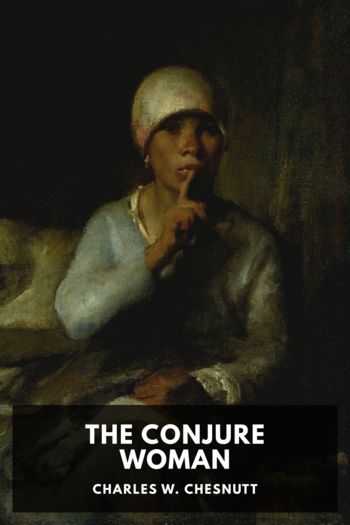The Lives of the Caesars, Suetonius [best book club books for discussion .TXT] 📗

- Author: Suetonius
Book online «The Lives of the Caesars, Suetonius [best book club books for discussion .TXT] 📗». Author Suetonius
Accordingly he remained in Rhodes against his will, having with difficulty through his mother’s aid secured permission that, while away from Rome, he should have the title of envoy262 of Augustus, so as to conceal his disgrace.
Then in very truth he lived not only in private, but even in danger and fear, secluded in the country away from the sea, and shunning the attentions of those that sailed that way; these, however, were constantly thrust on him, since no general or magistrate who was on his way to any province failed to put in at Rhodes. He had besides reasons for still greater anxiety; for when he had crossed to Samos to visit his stepson Gaius, who had been made governor of the Orient, he found him somewhat estranged through the slanders of Marcus Lollius, a member of Gaius’ staff and his guardian. He also incurred the suspicion of having through some centurions of his appointment, who were returning to camp after a furlough, sent messages to several persons which were of an ambiguous character and apparently designed to incite them to revolution. On being informed by Augustus of this suspicion, he unceasingly demanded the appointment of someone, of any rank whatsoever, to keep watch over his actions and words.
He also gave up his usual exercises with horses and arms, and laying aside the garb of his country, took to the cloak and slippers;263 and in this state he continued for upwards of two years, becoming daily an object of greater contempt and aversion. This went so far that the citizens of Nemausus264 threw down his statues and busts, and when mention was once made of him at a private dinner party, a man got up and assured Gaius that if he would say the word, he would at once take ship for Rhodes and bring back the head of “the exile,” as he was commonly called. It was this act especially, which made his position no longer one of mere fear but of actual peril, that drove Tiberius to sue for his recall with most urgent prayers, in which his mother joined; and he obtained it, although partly owing to a fortunate chance. Augustus had resolved to come to no decision of the question which was not agreeable to his elder son,265 who, as it happened, was at the time somewhat at odds with Marcus Lollius, and accordingly ready to lend an ear to his stepfather’s prayers. With his consent therefore Tiberius was recalled, but on the understanding that he should take no part or active interest in public affairs.
So he returned in the eighth year after his retirement, with that strong and unwavering confidence in his destiny, which he had conceived from his early years because of omens and predictions.
When Livia was with child with him, and was trying to divine by various omens whether she would bring forth a male, she took an egg from under a setting-hen, and when she had warmed it in her own hand and those of her attendants in turn, a cock with a fine crest was hatched. In his infancy the astrologer Scribonius promised him an illustrious career and even that he would one day be king, but without the crown of royalty; for at that time of course the rule of the Caesars was as yet unheard of. Again, on his first campaign, when he was leading an army through Macedonia into Syria, it chanced that at Philippi the altars consecrated in bygone days by the victorious legions gleamed of their own accord with sudden fires. When later, on his way to Illyricum, he visited the oracle of Geryon near Patavium, and drew a lot which advised him to seek an answer to his inquiries by throwing golden dice into the fount of Aponus, it came to pass that the dice which he threw showed the highest possible number; and those dice may be seen today under the water. A few days before his recall an eagle, a bird never before seen in Rhodes, perched upon the roof of his house; and the day before he was notified that he might return, his tunic seemed to blaze as he was changing his clothes. It was just at this time that he was convinced of the powers of the astrologer Thrasyllus, whom he had attached to his household as a learned man; for as soon as he caught sight of the ship, Thrasyllus declared that it brought good news—this too at the very moment when Tiberius had made up his mind to push the man off into the sea as they were strolling together, believing him a false prophet and too hastily made the confidant of his secrets, because things were turning out adversely and contrary to his predictions.
On his return to Rome, after introducing his son Drusus to public life,266 he at once moved from the Carinae267 and the house of the Pompeys to the gardens of Maecenas on the Esquiline, where he led a very retired life, merely attending to his personal affairs and exercising no public functions.
When Gaius and Lucius died within three years, he was adopted by Augustus along with their brother Marcus Agrippa, being himself first compelled to adopt his nephew Germanicus. And from that time on he ceased to act as the head of a family, or to retain in any particular the privileges which he had given up. For he neither made gifts nor freed slaves, and he did not even accept an inheritance or any legacies, except to enter them as an addition to his personal property.268 From this time on nothing was left undone which could add to his prestige, especially after the disowning and banishment of Agrippa made





Comments (0)